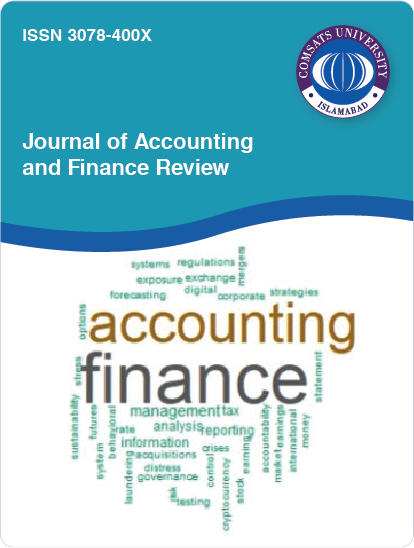Ownership structure and corporate social responsibility: A comparative analysis of Pakistani and Malaysian non-financial firms
DOI:
https://doi.org/10.26652/jafr/25.01.002Keywords:
Concentrated Ownership, CSR, Ownership structure, Director Ownership, Foreign Ownership, Family Ownership, Institutional OwnershipAbstract
The objective of this study is to examine the impact of ownership structure on corporate social responsibility (CSR), with a comparative analysis of non-financial firms in Pakistan and Malaysia. While CSR research in Asian countries remains limited. The study focuses on two key independent variables for comparative analysis: concentrated ownership and director ownership. Additionally, it analyzes family ownership, institutional ownership, and foreign ownership specifically within Pakistan. The data was collected from annual reports and sustainability reports over a five-year period (2014–2018). The Generalized Method of Moments (GMM) analysis was used in SAS, with profitability, firm size and leverage, included as control variables. The findings reveal that concentrated ownership has an insignificant effect on CSR, while director ownership shows no impact on CSR activities. In Pakistani context, family ownership and foreign ownership also do not demonstrate significant influence on CSR engagement. This study offers insights for policymakers, suggesting that stricter regulations are necessary to ensure firms actively participate in CSR initiatives.
Downloads
Published
Issue
Section
License
Copyright (c) 2025 Journal of Accounting and Finance Review

This work is licensed under a Creative Commons Attribution-NonCommercial 4.0 International License.



